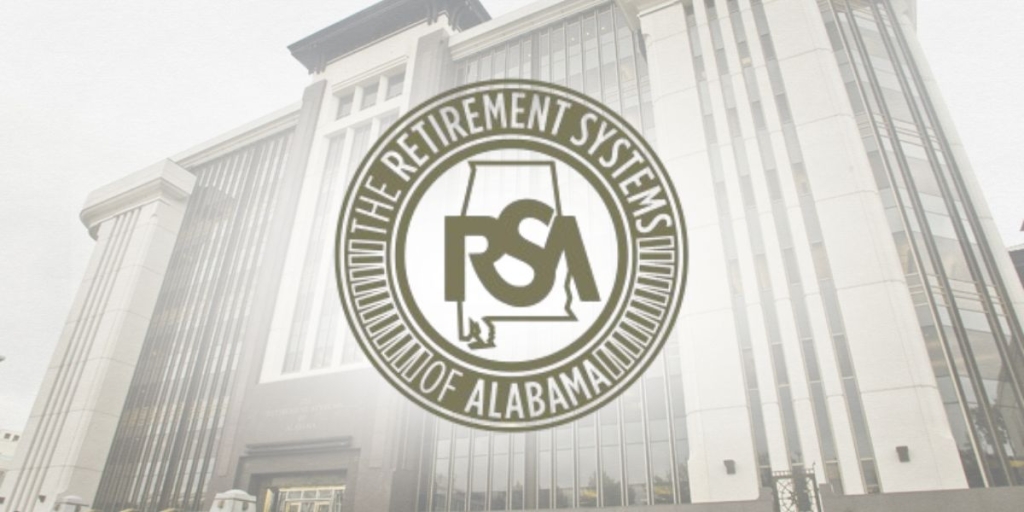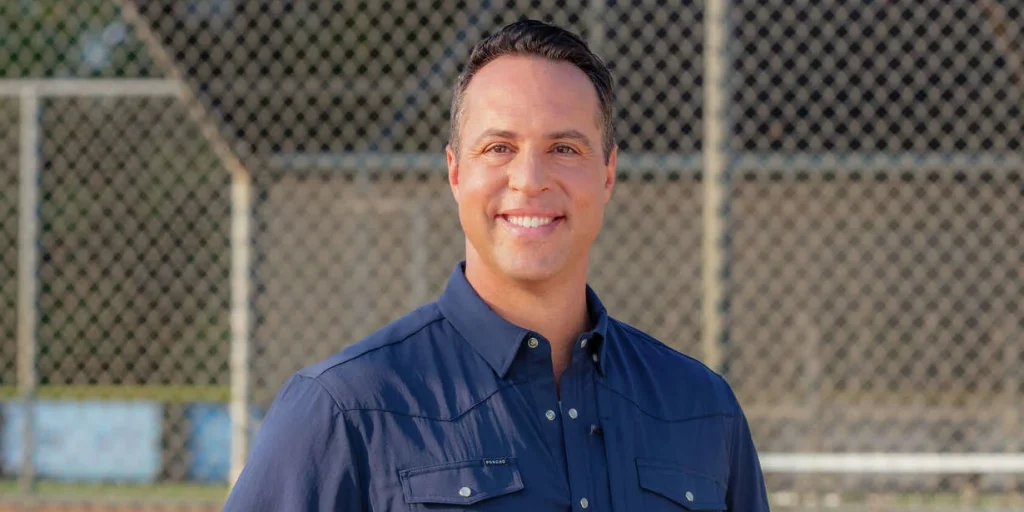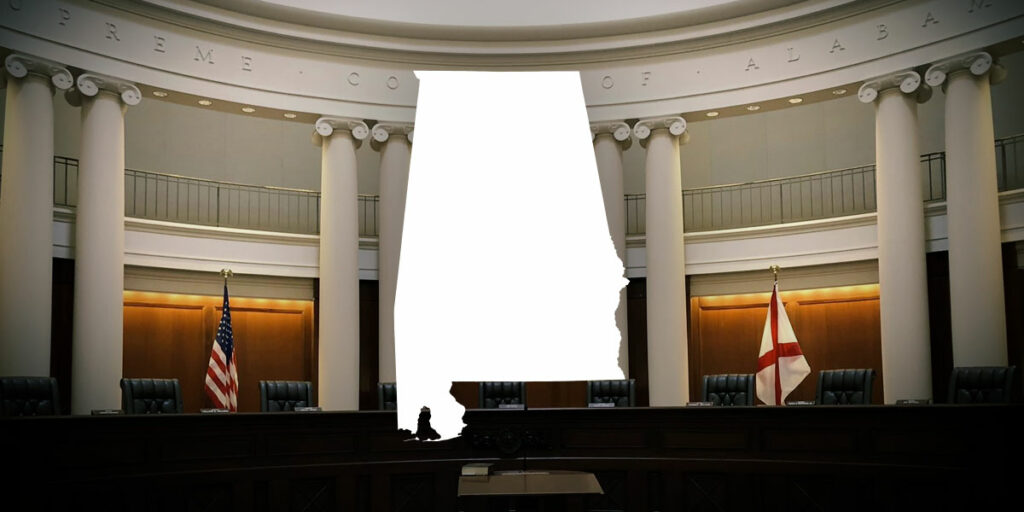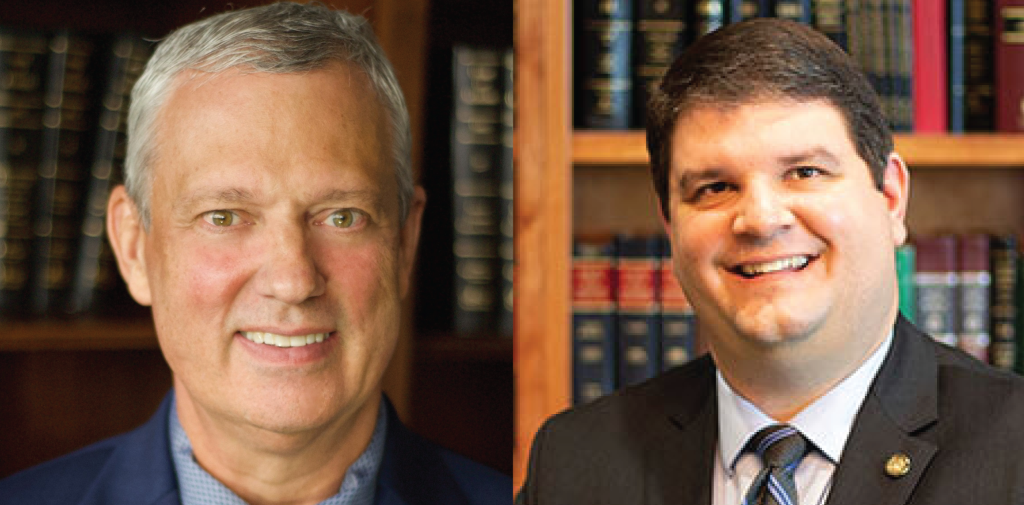Update 4:14 p.m. – The Alabama House passed HB227 in a vote of 79-9.
Today, Alabama House lawmakers will vote on the first major reform of the state ethics code since 2010. State Rep. Matt Simpson, a career prosecutor from Daphne and member of the House Judiciary and Ethics and Campaign Finance committees respectively, has taken on the task of bringing a reform bill, which sits before lawmakers as HB227.
Simpson (R-Daphne) and his bill have come under fire by state officials, including Attorney General Steve Marshall, Director of the Alabama Ethics Commission, Tom Albritton, and opinion columns as a “rewrite” of an ethics code that covers over 300,000 public employees and officials.
On Tuesday morning, Simpson said he stands adamantly behind the fundamental approach of making the code more comprehensive, transparent – and most importantly, he says – more understandable. In an interview with Yellowhammer News, Simpson cited a 2019 reform commission report that he says best encapsulates his motivation to take on the heavy lift now during the 2024 legislative session:
“In establishing the Commission, the Legislature recognized that the current Code of Ethics was originally enacted more than 40 years ago and has been amended at least 25 times since that time, and that the piecemeal amendments combined with evolving interpretations of portions of the code have created confusion regarding the scope and application of numerous sections of the code. The Legislature further recognized in the Act that the Code of Ethics applies to more than 300,000 individuals and their families in our state, from statewide elected officials to local public servants such as teachers and firefighters, and that the public is best served by clearly articulated ethical standards and policies so that our state’s public servants, and the general public, can better ensure that our government operates with confidence and integrity.”
RELATED: Steve Marshall: Is ethics legislation what the public wants?
According to Simpson, the Alabama Ethics Law, originally enacted 40 years ago, has undergone at least 25 amendments and a maze of informal rulings by the Alabama Ethics Commission that leaves the system “convoluted” and even “secretive.”
“It’s only fair that we let people know where the lines are,” Simpson said.
“In 2023, [the Alabama Ethics Commission] did three formal opinions. In 2022, they did two formal opinions. They’ve done five formal opinions in the last year. The problem with that is that nobody knows what’s going on with the informal opinions. The informal opinions have increased exponentially – to where they’ve had 980 in one year, they’re constantly going 750 informal opinions a year since Tom Albritton has taken over,” Rep. Simpson said.
“Informal opinions, nobody knows what the rationale is, nobody knows what the rules are, nobody knows how they’re being applied.”
“So we have this secrecy of, if you have this question, nobody is going to know what the answer is. So, if you ask an opinion, and I ask an opinion, we can get two completely separate opinions back to us informally, we would never know. Then the third person could not use any of those informal opinions as a rationale of how they should behave. There’s a lot of secrecy going on here.”
“I’m just trying to put a light on the secrecy,” Rep. Simpson said. “I’m all about, all about, telling people where the lines are, so that way, they know if they cross those lines – then yes, be punished – be punished harshly.”
Simpson said his encouragement to lawmakers is to consider the extent to which the state’s ethics code impacts Alabamians who don’t have the legal expertise to understand the ethics laws that govern them, including teachers, firefighters, and in one case he described, a city landscaping employee.
RELATED: Leading ethics law scholar addresses lawmakers ahead of 2024 reform effort
“There’s a story of the guy who was cutting grass, he was a city maintenance worker, brought a lawnmower from his house, donated his old lawnmower that was his personal lawnmower, donated it to the city so that way they could use it. Well, his new lawnmower goes out and he ends up having to borrow the other one he had donated through his own personal use — and that’s an ethics violation — because he used his office for personal use,” Simpson recounted.
“That’s not fair to that guy. He tried to do the best he can. But he’s stuck with ethics violation because of not knowing what the laws would be. We can’t all just say this is all about making sure somebody gets a free lunch — that’s not what we’re talking about. We’re talking about all these people, through the state, deserve the opportunity to know what the law says.”
Grayson Everett is the state and political editor for Yellowhammer News. You can follow him on Twitter @Grayson270













